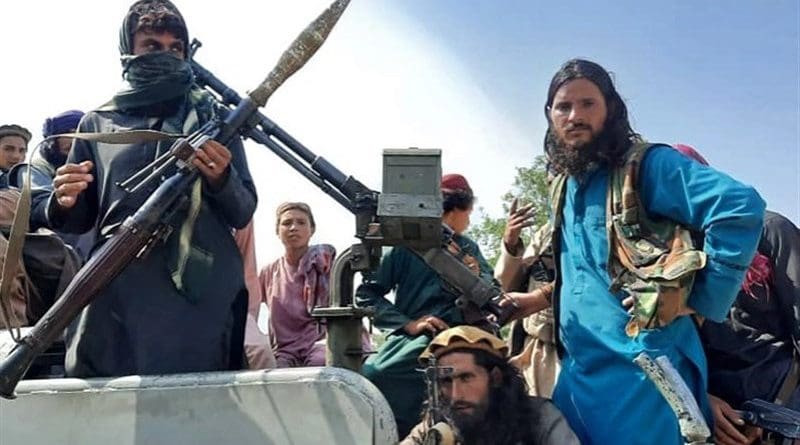The Taliban’s Imperative For Change – OpEd
By Shehla Rahim
In the aftermath of the Taliban’s swift takeover of Afghanistan, the world has been anxiously watching and waiting for the group’s next steps. As international scrutiny intensifies, there’s a growing consensus on the key principles that the Taliban must embrace to secure their recognition as a legitimate governing authority. The world is calling for the Taliban to respect human rights, ensure press freedom, promote women’s education, establish an inclusive government, and adjust themselves to the international order.
Human rights serve as the bedrock of a just and compassionate society. They encompass the right to life, liberty, and security, and the safeguarding of dignity and equality for all individuals, regardless of their background. The Taliban’s track record in this regard is disconcerting, with previous instances of grave human rights violations. International recognition hinges on the group’s commitment to respecting these fundamental human rights. By ensuring that every Afghan’s rights are upheld, the Taliban can prove that their leadership is evolving and becoming more attuned to global expectations. Respecting human rights also means addressing concerns about the safety of Afghans, especially those who may have worked with foreign entities or expressed opposing views in the past. The Taliban’s guarantee of their safety and security will be a litmus test for their dedication to human rights.
An independent and free press is an essential component of a functioning democracy. It serves as a watchdog, holding those in power accountable and enabling open and honest discourse. In recent years, Afghanistan witnessed a flourishing media landscape. A free press is not a luxury but a necessity for an informed citizenry. The Taliban’s commitment to press freedom will be a clear sign of their intentions. By allowing media outlets to operate without censorship and enabling them to report on events transparently, the Taliban can demonstrate their willingness to accept criticism and scrutiny. It is through a free press that the world will observe their actions and policies, helping to build trust.
Women’s Education
Education is a fundamental human right, and denying women and girls access to education is detrimental to a nation’s progress. Prior to their takeover, the Taliban displayed a regressive approach toward women’s education. This has to change if they wish to gain international recognition. Promoting women’s education is not only an ethical imperative but also a practical one. Educated women can contribute significantly to a nation’s development, economy, and social fabric. The Taliban’s commitment to women’s education will reflect their ability to adapt to a world that acknowledges the essential role of women in society.
An inclusive government that represents the diversity of a nation is vital for its stability and unity. Afghanistan is a culturally and ethnically diverse country, and its government should reflect this diversity. An inclusive government is essential for peace and the well-being of all citizens. The Taliban’s willingness to engage in an open dialogue with all segments of Afghan society to form an inclusive government is pivotal. This demonstrates their commitment to a peaceful transition of power and assures Afghans that they have a voice in the country’s future.
Adjusting to the International Order
The global community operates within a framework of norms, principles, and international laws. Adjusting to this international order is not a compromise but a recognition of Afghanistan’s role in the world. By doing so, the Taliban can pave the way for diplomatic relations, humanitarian assistance, and economic development. Embracing international norms and principles is a diplomatic necessity. It enables Afghanistan to be a responsible member of the international community. The Taliban’s ability to adapt to these norms will play a vital role in determining their recognition.
The world is cautiously watching the Taliban’s actions, hoping for positive changes. The past has left many nations skeptical, but the present offers an opportunity for transformation. Embracing these imperatives does not mean surrendering ideology but recognizing the need for change and adaptation. The humanitarian situation in Afghanistan is dire. International aid is essential to address the pressing needs of the Afghan people. However, the provision of aid is closely linked to the international community’s assessment of the Taliban’s commitment to these five core principles.
Afghanistan’s neighboring countries, particularly Pakistan, have a pivotal role to play in influencing the Taliban’s decisions. As a country that has historically had significant influence over the Taliban, Pakistan’s stance on these imperatives could make a substantial difference. Regional stability, trade, and development depend on a peaceful and stable Afghanistan. Neighboring countries have a vested interest in ensuring that the Taliban’s actions align with these key principles.
In Conclusion
The Taliban’s path to international recognition is laden with challenges. The world is watching, waiting to see if they can transcend their previous reputation and build a more inclusive, peaceful, and stable Afghanistan. By respecting human rights, enabling press freedom, promoting women’s education, establishing an inclusive government, and adjusting themselves to the international order, the Taliban can take a substantial step forward. It is a choice that not only benefits Afghanistan but also brings the country back into the fold of the international community. The humanitarian crisis in Afghanistan requires immediate attention. Recognition by the international community can unlock essential aid and support. The time to act is now, and it is in the Taliban’s hands to make these vital changes and set Afghanistan on a path to a more hopeful future.

